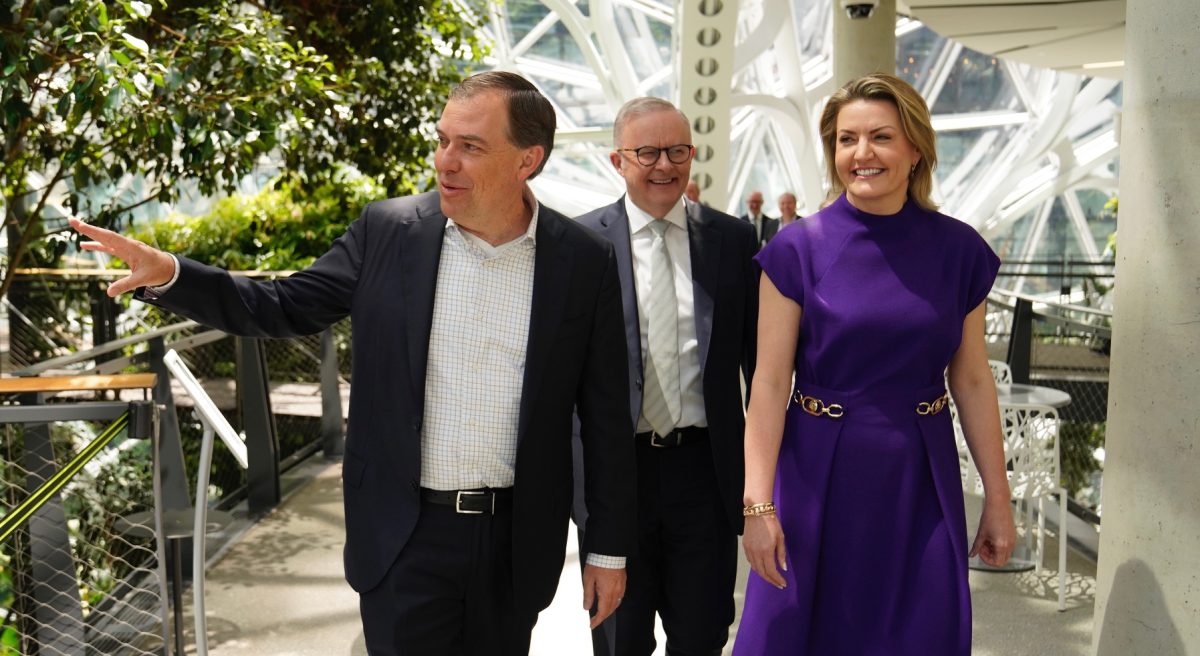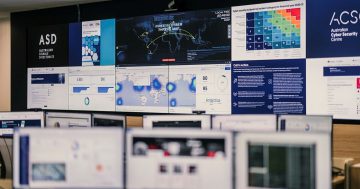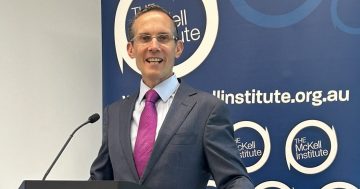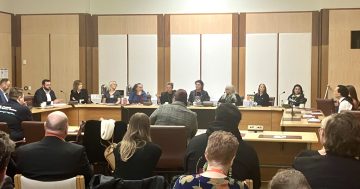
Prime Minister Anthony Albanese (centre) with AWS’s CEO Matt Garman and Australian New Zealand manager Rianne van Veldhuizen. Photo: Supplied.
Amazon Web Services (AWS) will invest $20 billion over five years to help boost Australia’s capacity to support and embrace artificial intelligence across the public sector and encourage its further adoption in the private sector.
The money will be diverted to data centre infrastructure in Australia, driving the development and expansion of data centres in Melbourne and Sydney.
Funding will be allocated towards storage, networking, analytics, and other advanced, highly secure services, supporting the demand for cloud and AI solutions.
Anthony Albanese joined AWS chief executive officer Matt Garman in Seattle, US, last week before heading to Alberta, Canada, for the G7 Summit.
The Prime Minister described the development as an “exciting opportunity for Australia to build AI capability” and said the investment was the largest the country had seen from a global technology provider.
“This is exactly the kind of economic investment in our nation that we want to see, and creates opportunities for continued innovation and growth,” Mr Albanese said.
“The investment will generate economic opportunity for Australians, including skilled jobs and infrastructure that can support complex AI and supercomputing applications.”
Over the next five years, the money will provide the world’s most advanced infrastructure to support complex AI and other technology applications, enabling organisations across Australia to train and deploy AI models and continue to rapidly innovate.
Three new solar farms in Victoria and Queensland will support the expansion of infrastructure.
“This significant investment will offer Australian industries the ability to take advantage of the revolutionary opportunities provided by artificial intelligence,” the PM said.
“It will build on Australia’s growing data centre infrastructure and contribute to our economic growth and resilience, including by providing more skilled jobs and AI-ready infrastructure.
“This investment highlights AWS’s role as a trusted US-based global technology provider, with a strong presence in and commitment to Australia, reflecting Australia’s continued strength as an attractive destination for business and investment.”
AWS has invested $9.1 billion in Australia since establishing its presence in Sydney in 2012.
It has trained more than 400,000 people in Australia since 2017 to develop digital skills and will continue to support generative AI programs, such as AWS AI Spring Australia and AWS Generative AI Accelerator.
Mr Garman said the planned investment deepens AWS’s long-term commitment to supporting the growth and development of generative AI in Australian organisations of all sizes.
“We’re proud to be expanding our world-class data centre infrastructure, bringing more renewable energy projects online, and supporting the country’s vision to be a global AI leader,” he said.
“AI is a once-in-a-generation transformation, and Amazon is pleased to be empowering all Australians to innovate at scale through this investment.”
The investment builds on the Federal Government’s strategic partnership with AWS to deliver a sovereign Top Secret Cloud, which is expected to generate up to 2000 Australian jobs.
It will expand Australia’s growing data centre infrastructure and support technology adoption by Australian businesses.
AWS matches 100 per cent of its electricity consumption with renewable energy across its global operations, including Australian data centres, as part of its plans to achieve net zero by 2040.
Questions have been raised, however, about how much tax the company will pay in Australia from securing valuable public contracts.
When asked to comment on that during an interview on Channel Nine’s Today Show on Monday (16 June), Liberal Senator Andrew Bragg said he had no idea how AWS paid tax in Australia.
“That’s a fair question, but the real point here is that artificial intelligence and new technologies could actually be a great opportunity for Australia to lift its very sluggish productivity if it’s done in the right way,” he said.
“And I think the government’s got a very questionable commitment to the whole idea of it. I mean, Tim Ayres, who’s the Industry Minister, was saying the other day that he wants to put the unions in charge of AI.
“I mean, that’s a recipe to destroy our competitive position. And, you know, we welcome foreign investment, we want the jobs, but we’ve got to look like we actually are committed to the future, rather than just wanting to put the unions in charge of everything.”
Employment and Workplace Relations Minister Amanda Rishworth said that any company operating in Australia must abide by Australian law.
“Whether that is in workplace relations, whether that is tax arrangements, there’s Australian law, and if you operate here, you’ve got to abide by it,” she said.
“And I would just say … it is really important that workers are a part of the discussion about how AI is going to affect their jobs, along with business.”
Original Article published by Chris Johnson on Region Canberra.










